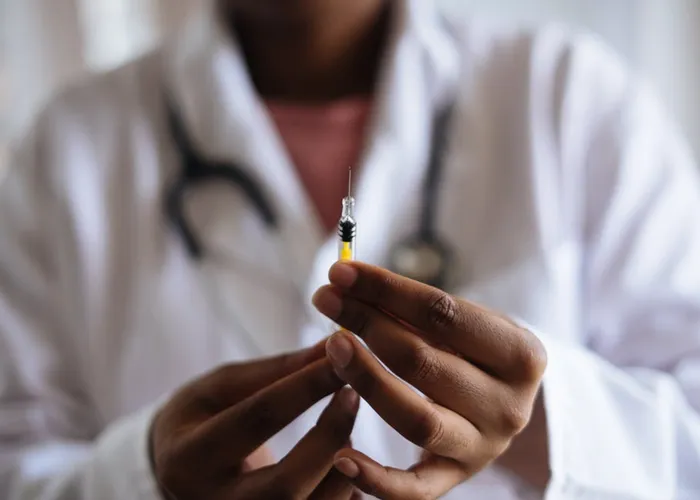Millions of children missing vaccines
Vaccines

Health experts say the Covid-19 pandemic has reversed vaccine gains.
Image: Pexels
MILLIONS of children around the world may be at risk because of stalling vaccination efforts in recent years, according to an analysis of a half-century of global vaccination efforts.
The study, published Tuesday in the Lancet medical journal, said that the World Health Organization’s global vaccination program “has achieved remarkable success” since it was created in 1974, reaching more than 4 billion children and saving 154 million lives.
But progress has stalled in recent decades, the authors said, with inequalities in access and the impact of the coronavirus pandemic, as well as an upsurge in vaccine hesitancy and misinformation, continuing to hinder progress.
The study said that while global coverage for key vaccines, including those against measles, polio and tuberculosis, almost doubled between 1980 and 2023, progress slowed in many countries and territories between 2010 and 2019, and has even reversed in some cases in recent years.
The trend was also seen in wealthier parts of the world, with declines in at least one key vaccine in 21 of 36 high-income countries and territories.
The coronavirus pandemic “exacerbated these challenges, with global rates for these vaccines declining sharply since 2020, and still not returning to pre-COVID-19 pandemic levels as of 2023,” the study said, causing tens millions of children to miss doses of routine vaccines and “increasing their risk for preventable disease and death.”
“Despite the monumental efforts of the past 50 years, progress has been far from universal. Large numbers of children remain under- and un-vaccinated,” senior study author Jonathan Mosser of University of Washington’s Institute for Health Metrics and Evaluation said in a news release.
“Routine childhood vaccinations are among the most powerful and cost-effective public health interventions available, but persistent global inequalities, challenges from the COVID pandemic, and the growth of vaccine misinformation and hesitancy have all contributed to faltering immunisation progress,” he added.
In many countries, these trends have led to outbreaks of diseases that can be prevented by vaccination, such as measles, polio and diphtheria, the study said.
Kate O’Brien, WHO director for immunization, vaccines and biologicals, said in an emailed statement that “despite incredible progress” brought about by vaccines, “we are now confronting a painful reality: Progress has stalled and in some countries is being lost. Immunization rates have plateaued, and year after year, we are reaching the same proportion of children without extending their reach to those left behind.”
“Unless we intensify efforts to reach more children through equitable routine immunization programmes, increase domestic investment, and strengthen vaccine confidence and demand, we risk undoing years of hard-won progress - leading to a future where more children suffer from preventable illnesses and premature death,” she added.
An increase in vaccine hesitancy, as well as misinformation - which the WHO signaled as a leading threat to global public health even before the pandemic - have impacted immunization, the study noted. Conflict is another factor. The outbreak of civil war in Sudan in 2023 led to one key coverage measurement - the number of children receiving the first dose of the DTP vaccine against diphtheria, tetanus and pertussis - falling from almost 90 percent to about half of that, according to the study.
Planned budget cuts to vaccines “are likely to disproportionately affect low-income and middle income countries,” the study said, but richer countries are also likely to be affected by higher costs caused by increasing outbreaks.
The study’s findings echo a warning this spring from the head of the World Health Organization, Tedros Adhanom Ghebreyesus, who noted outbreaks of vaccine-preventable diseases were increasing around the world, “putting lives at risk and exposing countries to increased costs in treating diseases and responding to outbreaks.” He urged countries with limited resources to “invest in the highest-impact interventions - and that includes vaccines.”
The study, which was funded by the Bill & Melinda Gates Foundation and Gavi, the Vaccine Alliance, was published in the Lancet medical journal. Last month, Health and Human Services Secretary Robert F. Kennedy Jr. said he may stop government scientists from publishing in the Lancet and several other top peer-reviewed journals, accusing them - without evidence - of being “corrupt.”
Shortly after returning to office in January, President Donald Trump announced the United States’ withdrawal from the WHO. Two months later, a USAID document showed that the administration planned funding cuts for Gavi, which provides lifesaving vaccinations for millions of people in the world’s poorest countries.
Domestically, following the deaths of two children in Texas from measles - with a total of 23 outbreaks recorded across the U.S. with more than 1,000 confirmed cases - Kennedy has given mixed messages on measles immunization and caused controversy by announcing placebo testing for new vaccines.
David L. Heymann, professor of infectious-disease epidemiology at the London School of Hygiene and Tropical Medicine, and who was not involved in the research, said in a telephone interview Wednesday that public trust is a key part of vaccination success.
He urged governments to “take a great interest in this and to make sure that they’re getting the right messages to their people,” and emphasized the importance of evidence-based recommendations from trusted organizations like the U.S. Centers for Disease Control and Prevention.
Sir Andrew Pollard, director of the Oxford Vaccine Group and a professor at the University of Oxford, who also was not involved in the research, in a statement called the findings a “worrying trend” that is “set to deteriorate” amid global health funding cuts.
In a separate email Wednesday, he accused the Trump administration of “undermining” parents’ confidence in vaccines, risking further drops in coverage.
“This combined with a catastrophic reduction of global health funding, rejection of scientific evidence on vaccines and challenges to credible scientific leadership on immunisation policy means that the once trusted voice of America on vaccines is diminished,” he said.